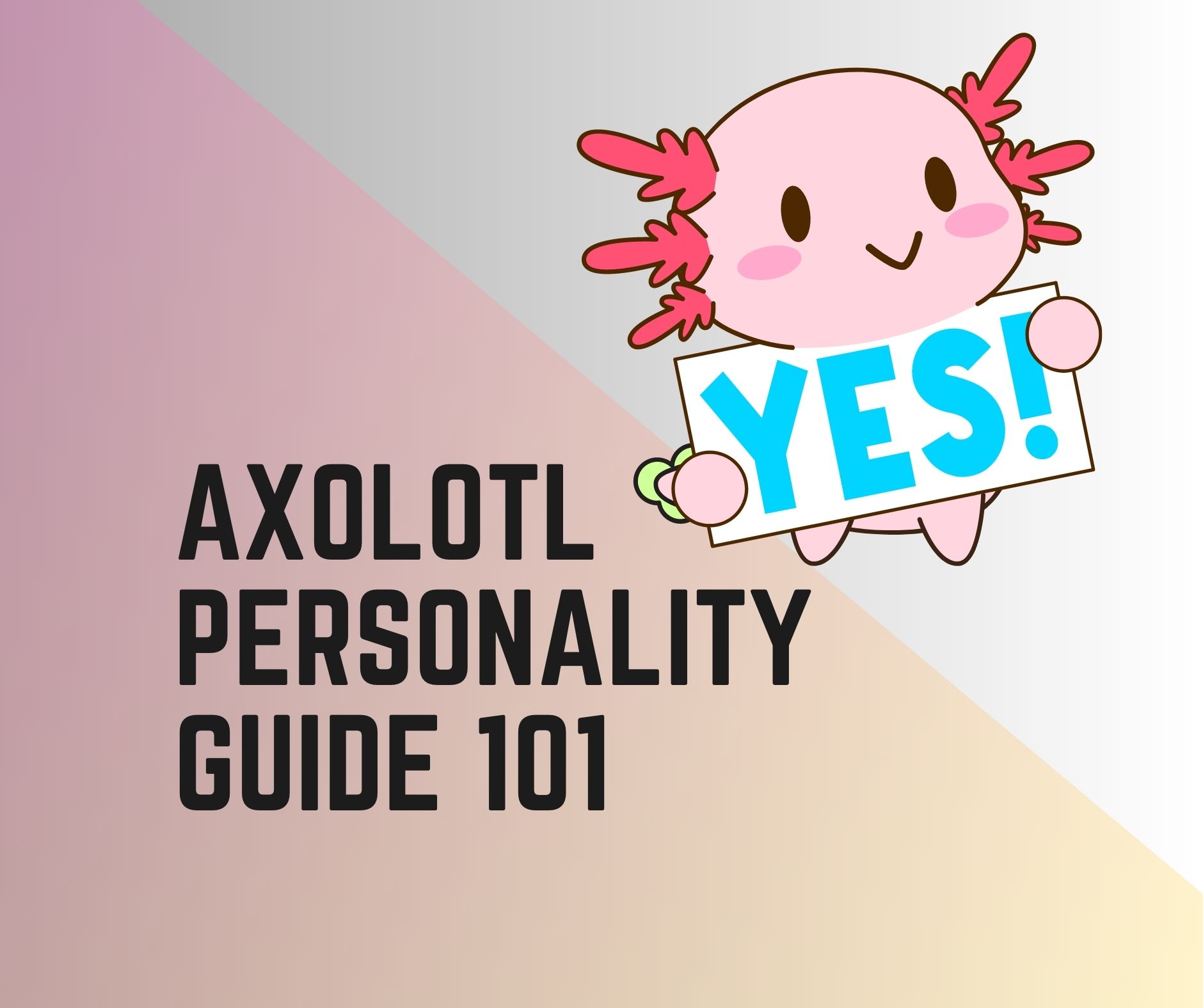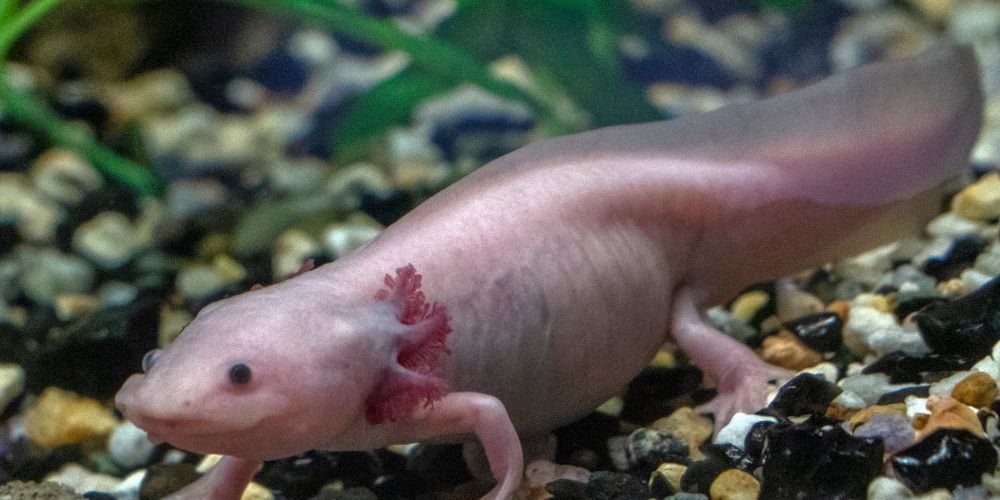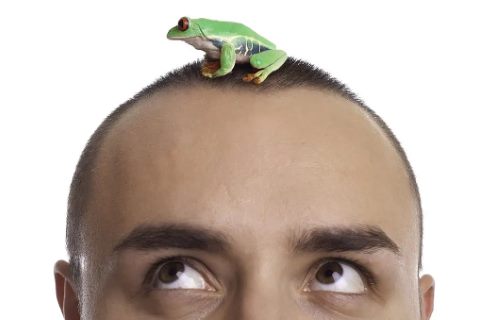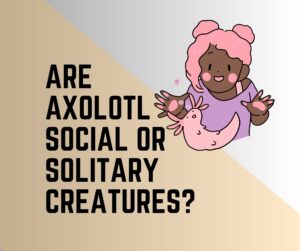
Wondering, Do Axolotls Have Personalities? Well, Personality is the consistent behavioral patterns that differentiate Axolotls within their own species. Researchers and Biologists often delve into Axolotls’ behavioral traits and preferences to determine if they exhibit any individual personality or not. Studying the personality traits of Axolotls can shed light on their cognitive abilities and social interactions and even impact their welfare in captivity.
Join us in this article as we delve into the emerging field of Axolotls’ Personality. Obviously, Axolotls may not have personalities as diverse as that of humans and some mammals, but there’s still room for it. Axolotls’ unique ability allow them to stand out from other fishes, aquatics, and amphibians. Here’s all that you need to know about Axolotl’s personality, whether they have one or not, and the mysteries of Axolotl’s behavior.

10 Amazing Axolotls Personality Facts
Axolotls are unique and fascinating aquatic creatures known for their external gills and cute appearance. While they may not exhibit a wide range of complex behaviors like other pets, they do possess distinct personalities and behaviors that make them interesting to observe and care for. Here’s a guide to understanding the personality of axolotls:
- Docile nature: Axolotls are generally peaceful and gentle creatures. They are not aggressive and rarely show any signs of hostility towards humans or other axolotls. They make great pets for those seeking a calm and low-maintenance companion.
- Curiosity: Axolotls are naturally curious animals. They love exploring their environment, investigating new objects, and interacting with their surroundings. Providing them with a variety of tank decorations and hiding spots can keep them mentally stimulated and engaged.
- Slow and deliberate movements: Axolotls are not known for their speed or agility. They move slowly and gracefully through the water, which adds to their charm. Observing their deliberate movements can be calming and therapeutic.
- Timidity: Axolotls can be somewhat shy and prefer to spend most of their time hiding or resting. They may retreat to their hiding spots when they feel threatened or stressed. It’s important to provide plenty of hiding places, such as caves or plants, to make them feel secure in their tank.
- Feeding behavior: Axolotls are voracious eaters and have an almost insatiable appetite. They are opportunistic carnivores and feed on a variety of live or frozen food such as bloodworms, brine shrimp, and small insects. Their feeding behavior can be entertaining to watch as they snap up their prey with lightning-fast movements.
- Individuality: Each axolotl has its own unique personality and preferences. Some may be more outgoing and curious, while others may be more reserved and prefer to stay hidden. Spend time observing and interacting with your axolotl to learn about its individual personality traits and preferences.
- Limited interaction: Unlike traditional pets like dogs or cats, axolotls do not require or seek out direct interaction with humans. They are not social animals and do not form strong bonds with their owners. However, they can recognize their owners to some extent and may become accustomed to their presence over time.
- Nocturnal habits: Axolotls are primarily nocturnal, meaning they are most active during the night. They tend to be more active and display their natural behaviors, such as hunting and exploring, when the lights are dimmed.
- Handling caution: While axolotls can tolerate gentle handling, it’s important to minimize physical contact as much as possible. They have delicate skin and can easily be injured or stressed by rough handling. If you need to handle them for maintenance purposes, use a soft, wet net or clean hands with no lotions or chemicals.
Remember, axolotls have specific care requirements, including a suitable tank setup, proper water parameters, and a balanced diet. Understanding their personality traits and providing an appropriate environment will help ensure their well-being and allow you to enjoy their unique and charming nature as aquatic pets.
Do Axolotls Have Personalities Like Humans?
The question of whether axolotls have a personality or not is still a topic of ongoing research and debate. In any non-human species, including axolotls, it is challenging to definitively determine the presence of personality. Although, since they are amongst humans, either under research or captivity, Axolotls may exhibit individual behavioral traits and preferences.
However, due to significantly different brain structures and cognitive abilities, Axolotls definitely do not have personalities like humans. It is challenging, or nearly impossible, to directly compare the concept of personality between axolotls and humans.
Some researchers say Axolotls display certain personality traits as variations in their activity level. The responsiveness to stimuli and even preferences for certain types of food or hiding spots display some personality of them. Observations like these suggest that Axolotls may possess unique behavioral tendencies that can be classified as their personality.
When learning about Axolotls, it is important to approach the concept of their ‘Personality’ with caution. Axolotls’ cognitive and behavioral capabilities aren’t fully understood, and more scientific investigation is needed to shed light on the same. While some preliminary evidence suggests the presence of individual personality in Axolotls, the scientific community still asks to explore more about the same.
How is Personality Traditionally Studied in Animals Like Axolotls?
Personality in animals like Axolotls is traditionally studied by analyzing the consistent patterns of their behavior over time across different contexts. Researching individuals uses behavioral tests, questionnaires, and other standardized methods for specific species to measure and quantify personality traits. These tests generally guess the characteristics including boldness, aggression, sociability, exploration, and stress response in animals. Researchers collect data on an individual’s behavior and responses to stimuli. They also identify and classify distinct personality types.
How do Researchers define and measure personality in axolotls?
Defining and measuring Axolotls’ personality involves a lot of methods and considerations. Researchers identify specific dimensions and behavioral traits, including boldness, activity level, sociability, exploration, etc., to indicate personality. They further conduct observations and then access all such traits consistently across individuals and contexts.
Behavior or Traits That May Exhibit Personality in Axolotls
Here is a range of behavior or traits that researchers and Axolotl owners use to indicate personality in these unique amphibians:
- Different levels of activity, from being relatively inactive and sedentary to being active and exploratory.
- The variation in aggression levels among axolotls. While some Axolotls can be more territorial than others, some of them can be assertive.
- Some Axolotls may exhibit a greater willingness to explore their surroundings as a sign of bolder behavior. Instead of hiding all day long may choose to interact with humans and approach novel objects.
- Some Axolotls may show signs of recognizing or may respond to some familiar individuals who feed them daily.
- Axolotls are known to respond to environmental stimuli. They can become less or more reactive to visual cues, vibrations, and sudden changes.
What is the Typical Temperament of Axolotls?
Axolotls generally tend to have a peaceful and docile temperament. They aren’t particularly aggressive or territorial. However, an individual Axolotl may exhibit slight variations in temperament. They can sometimes display aggression towards their tank mates if they mistake them for food. For the rest of the time, Axolotls usually has a calm demeanor, and they may choose to spend most of their time resting or hiding for no reason. These amphibians do not tolerate stress and, thus, often choose to stay on their own. They aren’t prone to excessive activity or hyperactive behaviors as well.
Are axolotls highly intelligent?
While Axolotls may have some fascinating characteristics, they may not be categorized as ‘Highly Intelligent.’ Axolotls have a relatively simple nervous system. Their cognitive abilities are very limited when compared to more complex organisms. Axolotls may learn and exhibit some general skills, but their intelligence level is yet quite low.
Can Axolotls Learn Tricks?
Axolotls who are responsive to their owners can definitely learn tricks. These amphibians have limited learning abilities; however, teaching them a few tricks and tasks is possible to some extent. Axolotls aren’t as trainable as dogs, cats, horses, or dolphins, but pet owners can still condition them to respond to certain stimuli.
Axolotl owners who are keen on teaching their pets a new skill should start with food. Present a specific stimulus like a visual cue or a tapping sound every time before offering them food. Doing so will allow Axolotls to associate that stimulus with feeding time. And with time, the Axolotls will start to exhibit anticipatory behavior every time they observe the cue. Or, use your finger and move it on the side wall of the tank in a certain direction. Axolotls will learn to follow patterns or objects with repetition and a lot of patience.
However, it is important to learn that Axolotls’ learning abilities and attention span are very limited, especially when compared to intelligent animals. Not all of them may respond equally to training since learning depends upon the individual behavior of an Axolotl. Also, while training Axolotls with any kind of tricks and tasks, a lot of patience, consistency, and positive reinforcement is a must.
Conclusion
Do Axolotls Have Personality? Well, the answer isn’t a clear Yes or No.
Axolotls may exhibit individual traits and behaviors that can contribute to their unique character and charm. Some of them can display different behaviors, preferences, and temperaments. Enough human interaction can teach Axolotls to encourage some form of personality and expression. However, compared to other animals, Axolotls do not have any prominent or visible personalities.

Hi, I’m Mike, and I’m the creator of amphibianlife.com. If there was one word to describe it? It would be: passionate about Amphibians! Whether you want to know more about amphibians or have a presentation to give at school, you’ve come to the right place.







